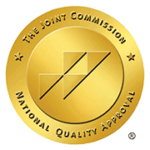Introduction
Anxiety is a common emotional experience characterized by feelings of tension, worried thoughts, and physical changes such as increased blood pressure. While everyone feels anxious from time to time, persistent anxiety that interferes with daily life could be a sign of an anxiety disorder. In this article, we will discuss the top signs of anxiety, how they manifest, and effective ways to address them.
What is Anxiety?
Anxiety is a normal stress reaction that has its uses, such as helping one get ready for a big event or keeping oneself safe. On the other hand, anxiety can turn into an anxiety disorder that needs to be treated if it persists for a long time and interferes with everyday activities. Anxiety disorders, which impact millions of individuals worldwide in all age groups, are among the most prevalent mental health conditions.
Top Signs of Anxiety
Here are the main symptoms and signs of having anxiety:
Excessive Worrying
One of the hallmark signs of anxiety is excessive worrying. This type of worry is often disproportionate to the situation and occurs most days over six months or more. Individuals with generalized anxiety disorder (GAD), for instance, often worry about everyday matters such as health, finances, or work, even when there is no specific reason for concern. This worry can be difficult to control and can significantly impact one’s ability to function in daily life.
Restlessness
Feeling restless or “on edge” is another common sign of anxiety. People with anxiety may find it difficult to relax, often feeling a sense of impending doom or as if something bad is about to happen. This restlessness can make sitting still, concentrating, or falling asleep at night hard.
Fatigue
Although it might seem counterintuitive, fatigue is a common symptom of anxiety. The constant state of heightened alertness and worry can be exhausting, leading to feelings of tiredness and low energy. In some cases, anxiety-related fatigue can be overwhelming and may even contribute to a cycle of anxiety and depression.
Difficulty Concentrating
Anxiety can significantly impact cognitive function, leading to difficulty concentrating or focusing on tasks. Individuals may find themselves easily distracted or forgetful, struggling to keep track of responsibilities or conversations. This can be particularly challenging in work or school environments, where concentration is crucial.
Irritability
Irritability is another common sign of anxiety, particularly when anxiety levels are high. This irritability can strain relationships with family, friends, and coworkers, as individuals may react more strongly to minor frustrations or become easily annoyed.
Muscle Tension
Physical symptoms often accompany anxiety, with muscle tension being one of the most common. People with anxiety may experience tightness in their neck, shoulders, or back and may even clench their jaw or fists without realizing it. Chronic muscle tension can lead to headaches, migraines, or other physical discomfort.
Panic Attacks
Panic attacks are sudden, intense episodes of fear, including symptoms such as a racing heart, shortness of breath, dizziness, and a sense of impending doom. These attacks can be debilitating and may occur without warning, sometimes leading to avoidance behaviors that further exacerbate anxiety.
How to Address Anxiety?
Here is how to address and take action to help with anxiety:
Seek Professional Help
The first step in addressing anxiety is to seek professional help. A healthcare provider can diagnose anxiety disorders and recommend appropriate treatments, which may include therapy, medication, or a combination of both. Cognitive-behavioral therapy (CBT) is particularly effective in helping individuals identify and challenge negative thought patterns that contribute to anxiety.
Practice Relaxation Techniques
Incorporating relaxation techniques into your daily routine can help manage anxiety symptoms. Techniques such as deep breathing exercises, meditation, and progressive muscle relaxation can reduce physical tension and promote a sense of calm. These practices are beneficial for managing acute anxiety and preventing future episodes.
Exercise Regularly
Regular physical activity is a powerful tool for reducing anxiety. Exercise increases the production of endorphins, which are natural mood boosters. It also helps regulate sleep, improves self-esteem, and reduces stress levels. Aim for at least 30 minutes of moderate exercise most days of the week.
Maintain a Healthy Lifestyle
A healthy lifestyle can make a significant difference in managing anxiety. This includes eating a balanced diet, getting enough sleep, and avoiding excessive caffeine or alcohol, which can exacerbate anxiety symptoms. Staying hydrated and maintaining a regular sleep schedule is also important for overall mental health.
Build a Support System
Having a strong support system can help you cope with anxiety. Talking to friends or family members or joining a support group can provide emotional support and reduce feelings of isolation. It is also important to communicate openly about your experiences and seek help when needed.
Learn Stress Management
Since stress is a major trigger for anxiety, learning effective stress management techniques is crucial. Time management, setting realistic goals, and taking regular breaks can help reduce stress. Mindfulness practices, such as being present in the moment and avoiding multitasking, can also reduce stress and anxiety.
Conclusion
Recognizing the signs of anxiety is the first step towards managing this common mental health condition. By understanding the symptoms and taking proactive steps to address them, you can improve your quality of life and reduce the impact of anxiety on your daily activities. If you or someone you know is struggling with anxiety, don’t hesitate to seek professional help and explore the various treatment options available.
If you are experiencing signs of anxiety, visit Mission Connection Healthcare for resources and support to help you manage your mental health.
Frequently Asked Questions (FAQs)
What are the common physical symptoms of anxiety?
Common physical symptoms of anxiety include muscle tension, headaches, a racing heart, shortness of breath, and digestive issues like nausea or stomachaches. Some individuals may also experience sweating, trembling, or feeling faint. These symptoms occur because anxiety triggers the body’s “fight or flight” response, which prepares you to deal with perceived threats.
How is anxiety different from everyday stress?
While both anxiety and stress involve similar physical and emotional responses, stress is usually linked to a specific situation and resolves once the situation is over. Anxiety, on the other hand, is often more chronic and may not have a clear cause. It can persist even when no immediate threat exists, leading to excessive worry and interfering with daily life.
Can lifestyle changes help manage anxiety?
Yes, lifestyle changes can significantly help manage anxiety. Regular exercise, a balanced diet, adequate sleep, and practicing relaxation techniques like deep breathing or meditation can reduce anxiety symptoms. Additionally, limiting caffeine and alcohol intake, which can exacerbate anxiety, and building a strong support system is also beneficial.







